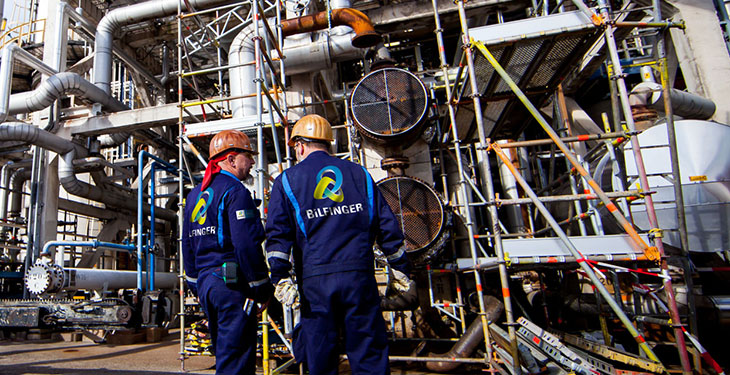Bogdan Tudorache
Electro mobility or e-mobility is a solution that grants us sustainable future with CO2 neutral mobility. The International Energy Agency predicts that electric vehicles will have a market share of about 30 percent by 2030, which roughly means 34 million e-cars on the roads. This transition has started already with industrial players creating our future right now and Bilfinger Tebodin is supporting this move. Recently in Central and Eastern Europe the company has been awarded 10 contracts for over 650,000 million euro for projects related to e-mobility.
Those include all types of products to serve electric vehicles – from raw materials to final battery assemblies.
”For Europe, the expected demand of produced EV batteries is 200 GWh annually by 2023, and 500 GWh by 2030. 90% of European EV batteries have been produced in Asia, and now we are glad to support new investors aiming to create self-sufficient local supply chain,” says Magda Zemanova, Automotive market leader in CEE at Bilfinger Tebodin.
EV battery business is not only about the final batteries assembly, but also about raw materials processing and more demanding chemical production of battery components such as cathodes, anodes, electrolytes and separators. Thanks to new EV battery plants raising up in Europe, the EU expects to have a 16% share of the 2,550 GWh global battery market by 2029 compared to just under 6% of todays 450 GWh2.
The major investments are in Germany, Poland and Hungary.
”We expect impressive announcements for other countries like Serbia or other Eastern countries, being a nice production location for European market and East-European OEMs (original equipment manufacturers). As for Central Europe, we see a bid interest in the Czech Republic as a hub for R&D centers,” adds Magda Zemanova.
Having over 60 years of experience in automotive business and a long-term track of chemical projects, Bilfinger Tebodin is now running four projects for automotive and chemical producers involved in the EV battery supply chain.
